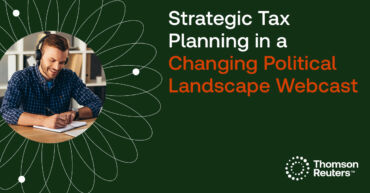The professional career of Carlos Lopez, the president & founder of the Latino Tax Professionals Association (LTPA), did not start in the usual way. “During college, I worked in a hospital kitchen,” Lopez says. “I enjoyed cooking, so I enrolled in a culinary program.”
Armed with a degree in restaurant management, a desire to be a restaurateur, and an opportunity to buy into an ice cream parlor franchise in the Bay Area, Lopez was able to realize his dream. About six months into running the restaurant, the reality of ownership — including the long hours and no days off — caused Lopez to reconsider his career choice as a franchiser. Still, it would be two years before he changed careers.
“At the time, I had a friend who is a CPA that prepared my taxes,” he explains. “As we were talking about depreciation and the P&L, I asked how much he charged for a tax return.” Hearing the response of about $300 per return, Carlos then decided he was in the wrong business.
At that time, the pathway to becoming a CPA required 800 hours in an audit department, which often paid minimum wage, and that wasn’t an option for Lopez, who had a family to support. Lopez’s friend suggested another option — become an enrolled agent. Unfamiliar with the concept, his accountant introduced him to a colleague who was an enrolled agent. Lopez decided this was something to explore further, and so he enrolled in a local college and took some tax classes. He later went to work for his accountant friend during tax season.
Opportunities & stars align
In 1986, shortly after Lopez became an enrolled agent, the Immigration Reform and Control Act, which provided amnesty to field workers, was passed. A consideration for amnesty required that applicants provide two years of tax returns. Lopez says he recognized the opportunity to provide tax services to this population and went to his manager with his idea. The men didn’t reach an agreement, but parted amicably with an arrangement that they would refer clients to each other. Lopez then launched a tax practice focused on servicing Latino clients.
In 1999, California relaxed its restrictions on non-credential tax preparers, which created yet another opportunity for Lopez — he started teaching people to do taxes, and even taught bi-lingual tax education for 10 years. Through teaching, Lopez learned to identify talented individuals who he would then recruit to become tax trainers, allowing him to expand his business throughout the region. In seven years, he opened seven new offices; and as Lopez’s businesses grew so did his reputation.
“I look for entrepreneurs and look for people that are well trained and would be willing to help out and volunteer some time,” Lopez says. “I believe in karma — what goes around comes around.”

Another opportunity presented itself through a friendship with an IRS district manager in the San Jose office, who asked Lopez to create a Spanish-speaking organization that would work with the IRS. Lopez was told that if he started a Spanish-speaking organization that he would be able to help change and influence tax policy that impacts Latinos. Understanding the magnitude of this opportunity, Lopez created the LTPA.
“This an underserved community that is highly entrepreneurial,” Lopez explains. “Everyone wants to be a business owner.” The challenge, however, comes mostly from the lack of formal training that is sometimes required to create and run a business. And often, taking college courses is not an option because of time and financial commitments, and so an organization like the LTPA fills that gap. In addition to offering bilingual tax preparation course, the group provides online bilingual qualifying education courses which are approved by the IRS and the National Association of State Boards of Accountancy (NASBA).
LTPA is a national organization, with members in California, Nevada, Arizona, Texas, Florida, New York, and New Jersey — “mainly in areas where there are a lot of Latinos,” says Lopez. The organization is comprised of 55% women, and the average age range is between 30 and 55. A majority of the women are mothers who also have another job because working only during the tax season isn’t enough to sustain them throughout the year. The training offered by the LTPA is geared towards these individuals, who will “take an hour out of their day, do some training… and learn how to make her tax business grow.”
The LTPA also hosts Latino Tax Fest, an annual conference usually held in Las Vegas, which started with just 400 attendees and 20 vendors in 2014, its first event. In 2019, attendance had boomed to 2,800 attendees and more than 100 exhibitors. The IRS sees the conference as a unique opportunity to be in front of the only Latino association for tax preparers and often sends its top tax experts to speak at the conference.
The LTPA has highlighted several key initiatives, including teaching financial literacy to high school students, which serves to not only educate them about their own finances but to provide them with insight into the tax and accounting profession, Lopez says.
The LTPA is also working with a local community college, Oxnard College in southern California, to offer a tax preparer certification program. The organization further hopes to partner with sponsors to better help expand the certification program to other community colleges across the region and states.









